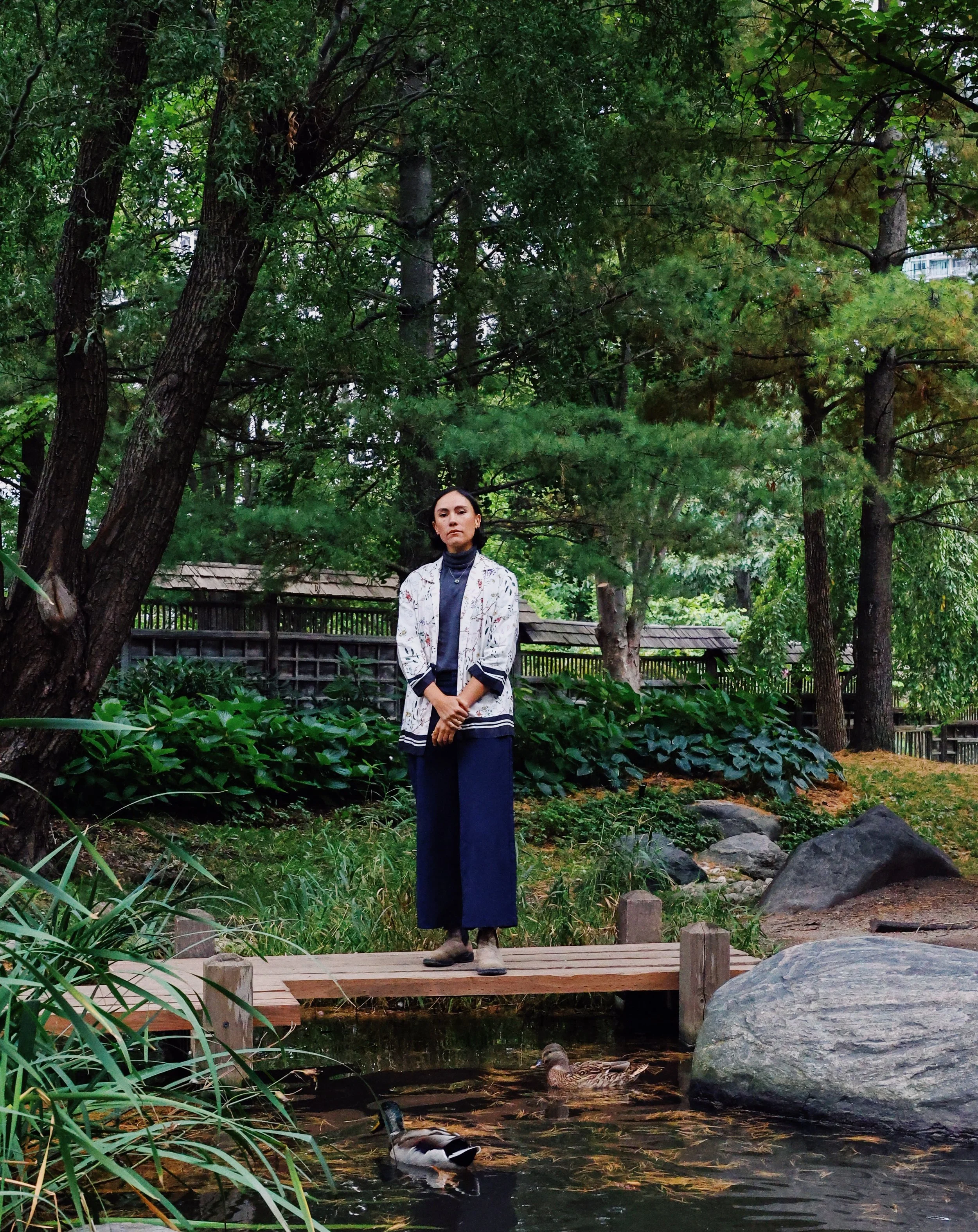Em Dial is a queer, Black, Taiwanese, Japanese, and White, chronically ill poet, grower, and educator born and raised in the Bay Area of California, currently living in Toronto. They are a Kundiman Fellow and recipient of the 2020 PEN Canada New Voices Award and the 2019 Mary C. Mohr Poetry Award.
“My Japanese great-grandfather occupies my Taiwanese great-grandmother’s homeland. I imagine this— unshoveling both of their graves for this story…”
Person with 1/8th Japanese Ancestry Interrogates Yugen, ending in seven haiku for the other 7/8ths
Yugen is an important tenet of traditional Japanese art. It can be understood to mean when you have so little you have to imagine it. As the 14th century actor Zeami Motokiyo says, a gentle gracefulness, a tranquil loneliness, to watch the sun sink behind a flower clad hill.
::
So little you have to imagine it, and so I imagine this-- my Japanese great-grandfather occupies my Taiwanese great-grandmother’s homeland. I imagine this-- unshoveling both of their graves for this story but not being able to read what is written across their headstones.
::
There are things I do not have to imagine: he burns his military uniform, the Japanese off of his tongue, my great-grandfather stripping himself of land, language, and duty for something I hope was love. There was a lie that became a shield that became a homeland locked behind a fortress.
::
My great grandfather could have been the jagged dusk of a sword but I like to imagine him soft as a cherry blossom. I like to imagine he held my great grandmother, said “My island has choked your island on every shore, but look here, I disarm myself into open ocean.”
::
They name my grandmother Tsai Hsia, meaning, the northern lights, clouds brightly coloured by the sun, the sun sinking behind a flower clad hill. I know the teeth of a blade when I feel them. The war churns from her blood a Japan that is land of the setting sun.
::
A generation and another and another. Children of bravery, of betrayal depending on who writes the story. Choices of love, choices of loneliness. How do you mourn the sand that has already slipped through your fingers. I take a fine toothed comb to my chromosomes and find an impossible task. They have me try to parse the white from the black from the asian and then there is no me left to do the work of a further splitting.
::
There, in a pile, a qipao from Taiwan, Japanese chopsticks, haw flakes melted on my tongue, my father’s Japanese saw, soy sauce sliced across rice, the orient and a widening jaw. They ask “What kind of Asian?” and both islands sink below the ocean of my blood, a second sun sinking behind a second flower clad hill. Yet, dawn comes again. Two suns rise, accompanied by two, four, sixteen more. To have so much light, imagine that.
::
Yugen - tradition
Japan you imagine it
sink behind a hill
Taiwan mother land.
unshovel grave his story
written across stones.
do not imagine
military tongue
father land hopes shield
dusk soft as blossom.
island choked your every self
into open ocean.
clouds coloured by sun,
sink the teeth of a blade in
my blood, becomes land.
another other.
How do you mourn chromosomes?
impossible. i m splitting.
There, in a pile m e
the ocean my blood a sun
light imagine that
When I stumbled upon the Japanese concept of yugen, I was struck by its resonance to my life. For diasporic people, there are often missing pieces to our stories, gaps that were formed due to colonial, imperial, military, or capitalist powers. I feel this deeply when I think about my distance from my Japanese lineage, which only makes yugen all the more relevant. I titled this piece Person with 1/8th Japanese Ancestry Interrogates Yugen, ending in seven haiku for the other 7/8ths in an attempt to point to the irony that comes with being someone of mixed ancestry - the irony of trying to bring together the different corners of your history while forces of white supremacy act to turn you into fractions. The haiku at the end, which are formed from an erasure of the first half of the poem, serve as a reminder to myself of yugen, of finding wholeness in the voids, of finding resistance in the silence. I hope that those who encounter this piece are moved to reject the obsession with borders that colonial and imperial forces encourage and to instead embrace the vibrant and unique histories we all contain.
